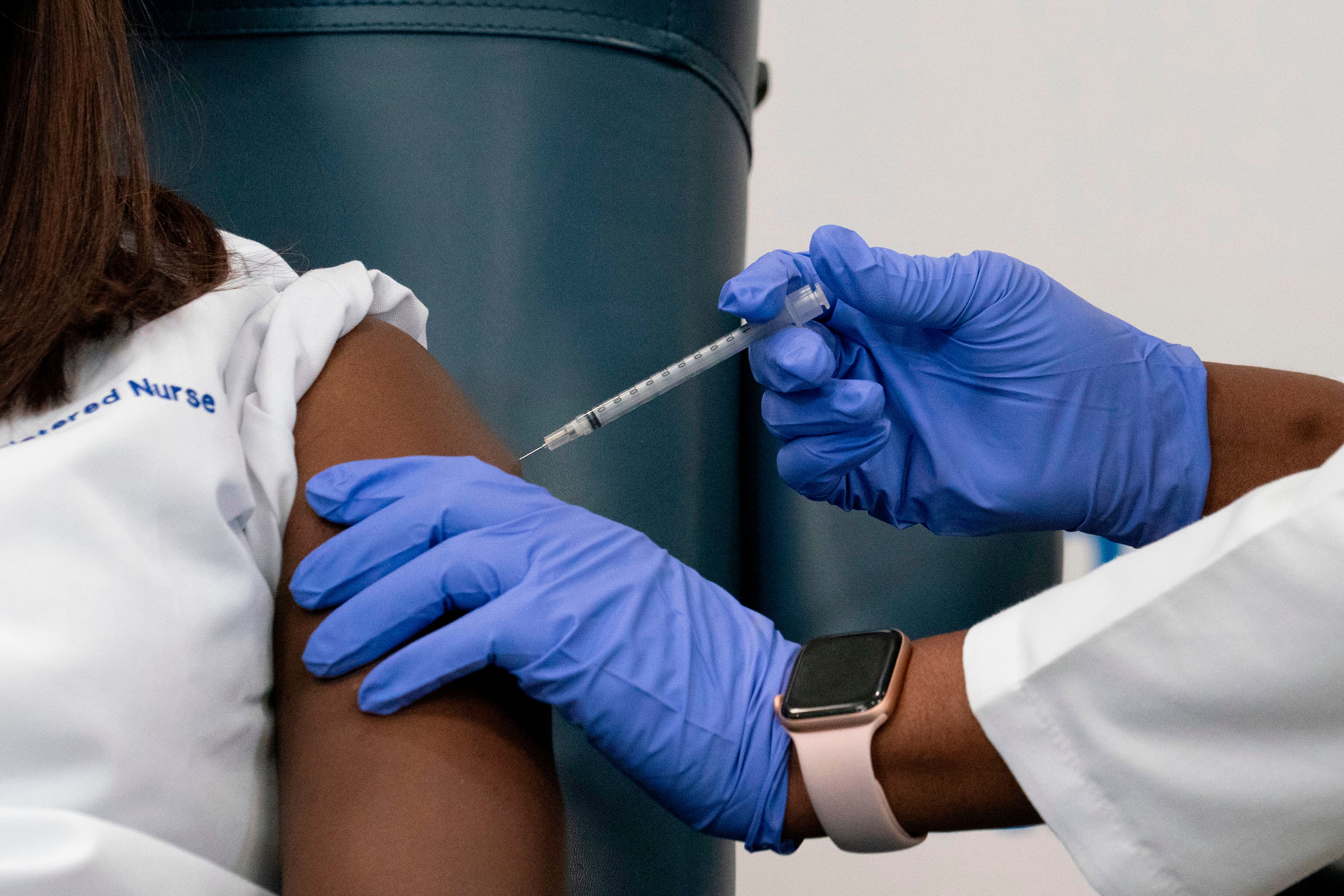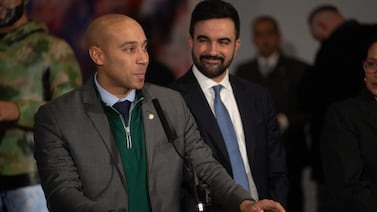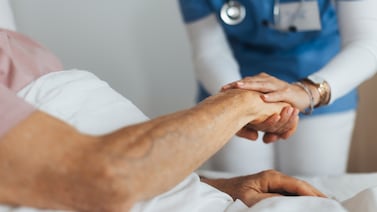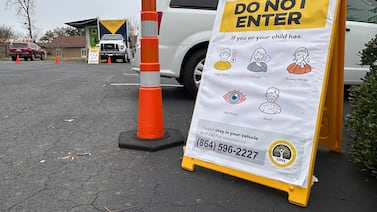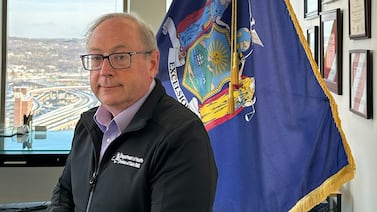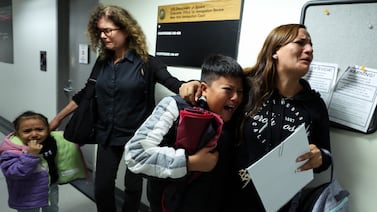Public health, explained: Sign up to receive Healthbeat’s free New York City newsletter here.
Updated Covid-19 vaccines are expected to roll out as soon as this week in New York, following the Food and Drug Administration’s approval Thursday of the new shots. But accessing the vaccines may be challenging for some New Yorkers.
The new vaccines arrive at an uncertain time in the pandemic. Covid-19 infections spiked in New York City this summer. Once widely distributed for free by the federal government, Covid-19 vaccines are now sold commercially. And a program from the Centers for Disease Control and Prevention that covered the cost of Covid-19 shots for uninsured and underinsured Americans is ending prematurely — this month.
“As programs like this end, we’re going to see less availability of vaccines, we’re going to see more people have to pay out of pocket for vaccines,” said Dr. David Scales, an assistant professor of medicine at Weill Cornell Medical College. “We’re going to see the convenience of vaccination go down, and that means vaccination rates are going to go down. It’s a shame.”
Nationwide vaccination rates were low for last year’s updated vaccine. In New York, 23% of adult residents received the 2023-24 Covid-19 vaccine, according to CDC estimates.
The new shots will cost around $201.99 for uninsured patients paying out of pocket at CVS, spokesperson Amy Thibault told Healthbeat.
They will still be free for Marketplace and Medicare enrollees and for uninsured, underinsured and Medicaid-eligible kids under the Vaccines for Children program. CVS said the shots should be free under most insurance plans at in-network pharmacies.
To obtain the updated shot, the New York City Department of Health and Mental Hygiene recommends that New Yorkers reach out to their health care providers or use the city’s vaccine finder.
“Updated vaccines are another opportunity to protect against the latest variant,” Health Department spokesperson Patrick Gallahue said in a statement. “The COVID-19 vaccines are now distributed through the commercial market and manufacturers will work to fulfill orders placed by pharmacies and other providers.”
Federal funding for Covid-19 vaccinations has long run dry. When Covid-19 vaccines hit the commercial market last year, the CDC’s Bridge Access Program offered a temporary solution for uninsured and underinsured adults, providing roughly 1.5 million free Covid-19 vaccines. The program was expected to run through December, but is ending months early.
Some state funding will help fill gaps when the Bridge Access Program — which the state and New York City participate in — ends this month, Danielle R. De Souza, a spokesperson for the New York State Department of Health, said in a statement.
The state’s Vaccines for Adults Program has roughly $1 million allocated this budget year for Covid-19 vaccines for uninsured and underinsured adults and plans to make up to 12,500 doses of the new vaccine available, De Souza said. That’s a tiny fraction of the roughly 1 million New Yorkers who are uninsured.
However, NYC Health + Hospitals, the city’s public health system, continues to offer Covid-19 vaccines at no cost to patients, said Dr. Jonathan Jimenez, a primary care doctor and the executive director of NYC Care, a health care access program that connects uninsured New Yorkers to services within the health system.
“The way we work at all of our facilities and clinics is to offer vaccines with no out-of-pocket costs to the patient, but also other preventive services,” Jimenez said. “Luckily, the end of the program doesn’t change how we’re operating.”
It’s smaller clinics and community health centers that may bear more of the brunt of the shift to commercial Covid-19 vaccines.
Callen-Lorde Community Health Center, a federally qualified health center in New York City that provides services to primarily LGBTQ+ patients, is poised to administer the updated vaccines. The health center uses a sliding scale payment system for uninsured and underinsured patients.
Immunization clinical director Elsbet Servay hopes that grants, patient assistance programs offered by vaccine manufacturers and state support might be able to help offset the cost of the new vaccines.
“Coverage has been an issue since commercialization rolled out last year and we unfortunately expect some challenges in maintaining access for un- and under-insured individuals,” Servay told Healthbeat in an email.
It’s difficult to know how many city residents are currently vaccinated against Covid-19. The Health Department stopped reporting new Covid-19 vaccination data last September. By that point, 91% of city residents had received at least one dose of a Covid-19 vaccine and 81% had completed the primary series, but only 16% had received the bivalent dose, introduced in 2022.
Jimenez urged New Yorkers to get flu and Covid-19 shots at the same time, particularly in anticipation of flu season this winter — and a likely rise in Covid-19 infections during that period.
“When you go into your fall visit, and you would typically get your flu shot, go ahead and ask for your Covid-19 shot as well,” he said.
Eliza Fawcett is a reporter covering public health in New York City for Healthbeat. Contact Eliza at efawcett@healthbeat.org. Healthbeat Atlanta reporter Rebecca Grapevine contributed to this report.

